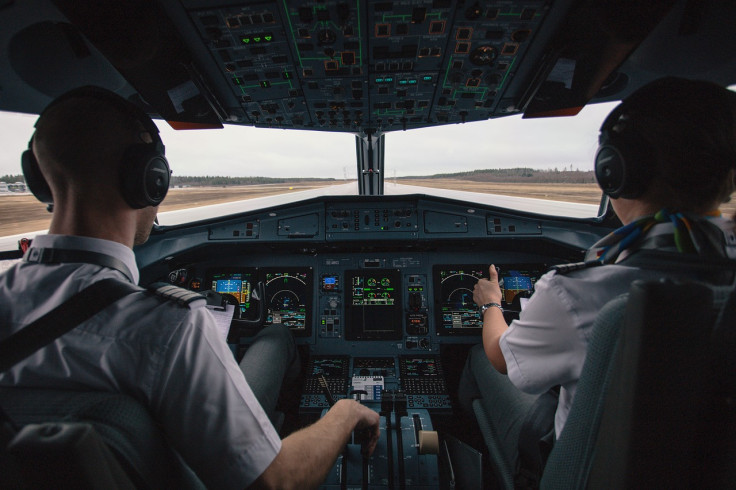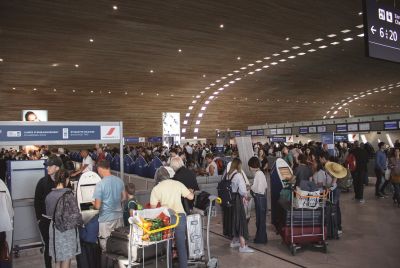Families Sue Boeing Over Air India Horror Crash That Killed 260 — Say 'Faulty Switches' Turned Plane Into Fireball
Victims' families say Boeing and Honeywell failed to fix known risks before deadly Air India crash killed 260

Boeing and Honeywell are facing a lawsuit in the United States after families of victims from the deadly Air India Flight 171 crash accused the companies of negligence and defective engineering.
The crash, which occurred on 12 June 2025 shortly after takeoff from Ahmedabad en route to London, killed 260 people, including passengers, crew, and residents on the ground.
The lawsuit, filed in Delaware Superior Court, alleges that defective fuel cutoff switches, installed behind the thrust levers, led to both engines shutting down shortly after takeoff, causing Air India Flight 171 to crash and erupt into flames.
Lawsuit Targets Boeing and Honeywell Over Fuel Switch Design
The families of four victims, Kantaben Dhirubhai Paghadal, Naavya Chirag Paghadal, Kuberbhai Patel and Babiben Patel, are seeking damages from Boeing, which manufactured the 787-8 Dreamliner, and Honeywell, which supplied the fuel control switches.
According to the complaint, the switches were installed in a vulnerable position directly behind the thrust levers, making them susceptible to accidental activation during routine cockpit activity.
The plaintiffs argue that this design flaw 'effectively guaranteed that normal cockpit activity could result in inadvertent fuel cutoff,' leading to a dual-engine flameout and catastrophic loss of thrust during takeoff. 'What did Honeywell and Boeing do to prevent the inevitable catastrophe? Nothing,' the complaint states, as reported by CNBC.
FAA Advisory Ignored, Say Families
Central to the lawsuit is a 2018 advisory issued by the US Federal Aviation Administration (FAA), which warned operators of several Boeing aircraft, including the 787, about the potential disengagement of the fuel control switch locking mechanism.
The FAA's Special Airworthiness Information Bulletin (SAIB No. NM-18-33) recommended inspections to ensure the switches could not be inadvertently moved, but did not mandate them.
India's Aircraft Accident Investigation Bureau (AAIB) confirmed in its preliminary report that Air India had not conducted the recommended inspections.
Maintenance records showed the throttle control module, which houses the switches, had been replaced in 2019 and again in 2023, but no action was taken to address the locking mechanism risk.
The AAIB report also noted that 'all applicable airworthiness directives and alert service bulletins were complied with on the aircraft as well as engines.'
Cockpit Chaos and a Single Survivor

The crash claimed the lives of 229 passengers, 12 crew members, and 19 people on the ground. Only one passenger survived.
Eyewitnesses described thick black smoke and flames engulfing the aircraft as it plummeted into a residential area near the airport. Forensic teams and aviation officials combed the wreckage for days, while grieving families demanded accountability.
The AAIB's preliminary findings depicted confusion in the cockpit moments before the crash, with both fuel switches inexplicably moving from 'run' to 'cutoff'. Investigators have not yet determined whether the switches were moved manually or failed mechanically.
Boeing and Honeywell Decline to Comment
Both Boeing and Honeywell are incorporated in Delaware, where the lawsuit was filed. Boeing, headquartered in Arlington, Virginia, declined to comment on the case. Honeywell, based in Charlotte, North Carolina, has not responded to media inquiries.
The lawsuit marks the first legal action in the US over the crash. The plaintiffs are citizens of India or the United Kingdom and currently reside in one of those countries. The case, Paghadal et al v Boeing Co et al, Delaware Superior Court, No. N25C-09-145, could set a precedent for international aviation liability.
Broader Safety Concerns for Boeing
The Air India crash adds to Boeing's mounting legal and reputational challenges. The company has already incurred more than $20 billion (approx. £15 billion) in costs related to the 737 MAX disasters in 2018 and 2019, which led to a global grounding of the aircraft for 20 months.
While FAA Administrator Bryan Bedford expressed 'a high level of confidence' in July that a mechanical fault was not to blame for the Air India crash, the lawsuit paints a different picture, one of ignored warnings, flawed design, and preventable tragedy.
As investigations continue across India, the UK and the US, the families say they are determined to hold Boeing and Honeywell accountable, not just for their personal loss, but to prevent future disasters.
© Copyright IBTimes 2025. All rights reserved.





















